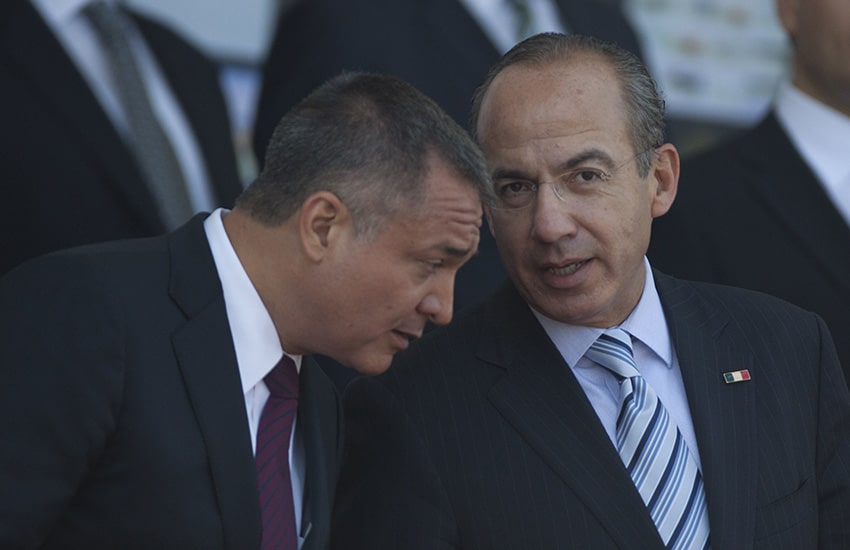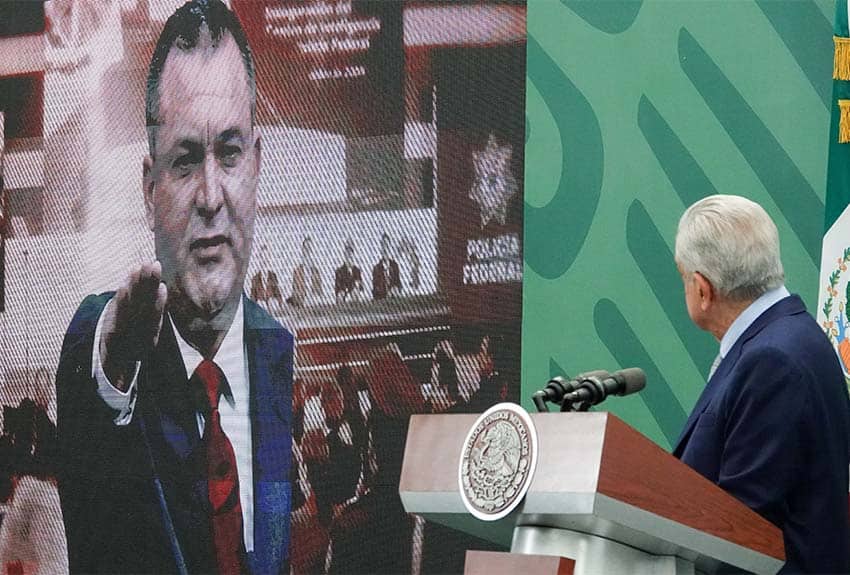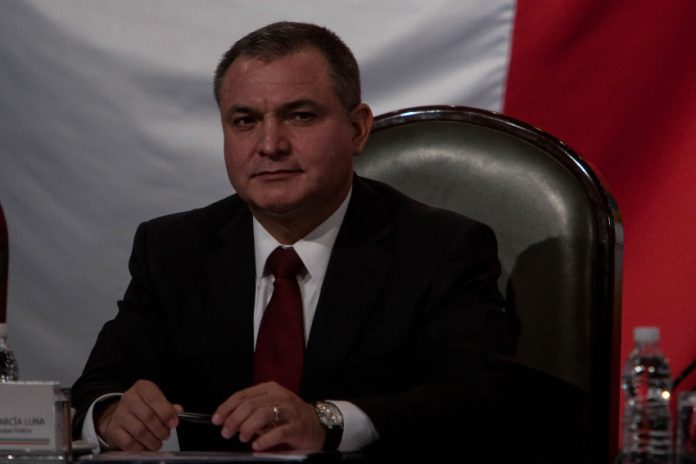The sentencing of Mexico’s former federal security minister, Genaro García Luna, convicted on drug trafficking charges in the United States in February, has been postponed until March 1. García Luna could face a prison sentence of 20 years to life.
Former president Felipe Calderón’s security chief was scheduled to be sentenced in September of this year following a postponement in April, but Judge Brian M. Cogan of the United States District Court for the Eastern District of New York – who also presided over the trial of notorious cartel boss Joaquín “El Chapo” Guzmán – has again ruled in favor of defense counsel’s request for an extension. The sentencing date had originally been set for June of this year.

García Luna’s defense team requested further time to review evidence that they believe is favorable to the disgraced politician, who was convicted of collusion with the Sinaloa Cartel during his time in office from 2006-2012.
“After the verdict in February, several individuals, including several former Mexican and American officials, have contacted us with new evidence potentially favorable for the defense,” said César de Castro, García Luna’s lawyer.
The former security minister, who was arrested in Texas in 2019, has long proclaimed his innocence, and De Castro has described the verdict as “shocking”, alleging it was based entirely on the testimony of “some of the most notorious and ruthless criminals this world has ever seen.”
De Castro says that the defense now has access to “thousands of materials, as well as audio and video files potentially relevant to the case.” This evidence was not presented during García Luna’s trial, and delayed sentencing was opposed by the prosecutor’s office, arguing that the defense had “more than three years to talk to witnesses, prepare subpoenas and investigate ways to defend [themselves].”

“The delivery of the sentence should not be allowed to be delayed,” prosecutors concluded.
The decision means that García Luna will be sentenced during the heat of the 2024 Mexican presidential election campaigns. The National Action Party (PAN), for whom he served as minister, is part of the Va por México coalition opposing President López Obrador’s ruling Morena party. This high-profile sentencing is likely to become a major talking point.
President López Obrador has referenced the case repeatedly since the arrest of the former minister, highlighting it as an example of corruption under what he calls the “old regime.” In May, the Federal Attorney General’s Office (FGR) obtained warrants for the arrest of García Luna and 60 others for embezzlement of 5.1 billion pesos of public monies.
For his part, Calderón has expressed doubts about the conviction of his security minister and claims he has been the victim of persecution by the media and opposition politicians.
According to a poll by El País newspaper, eight out of ten Mexicans say they believe Calderón should also be investigated over his time in office, in which there was a significant increase in violence and expansion of cartel operations across the country.
